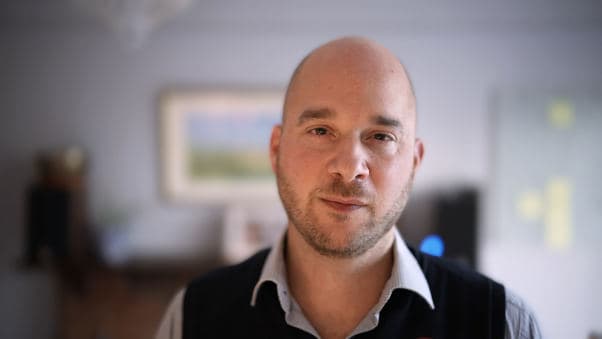Should we take everything we hear from someone we admire as true?
Should we disregard everything from people we don’t value?
Between the two statements there is a missing link. Listening for the truth in any message is important for our growth.
Even if that truth makes us uncomfortable, even if we disagree we can create a space of acceptance.
Episode Summary
In this episode, we are focusing on judging a message vs the messenger who delivered it. There are times that great messages come from people that we don’t think highly off.
The reason at times is because this person might have a specific weakness which we don’t agree with. under that light we stigmatise this person and define them to be that bad behaviour.
The problem with that is that it reflects backwards in us. It shows that we don’t have much tolerance for others and that means we don’t have much tolerance for ourselves.
We define others by a certain behaviour, that means that we define ourselves by certain behaviours as well. That can create great limits on how we perceive ourselves and others.
0:06 Story about Alan Watts Interview
1:10 Intro
1:23 Does this message work for you
2:25 Acceptance vs Agreement
3:18 Judgement and Self-perception
5:05 There are many sides to us that make us complex
6:08 Hypocrisy, Honesty, Double standards and Authenticity
7:43 Summary
8:35 Quote
8:41 Outro
Transcript
The other day, about Alan Watts kinda was the interviewer has the interviewee, whether he thought that the message that Alan Watts had was being diluted by the fact that some of the people consider him to be an alcoholic and to have problems with alcohol.
And that made me think it made me think and reflect into the fact that messages are important, and they carry a significant gravitas, they have something that we need to take away and not all messages are for everyone and not all messages are applicable to every situation.
But the thing that comes is like a lot of times we compare who said it, and what they said. And we judge the person that said, what they said. And then we also omit taking any value from the message that they gave just because of who they were.
So this episode is about reflecting into the message, versus the messenger, comparing the two, and understanding how we can learn more about ourselves and about other people.
Welcome my friends to another episode from Inside Treasures. My name is Phoebus, and I love to challenge myself and those around me, for the purpose of growth. The podcast is about helping you to heal, to change and to grow.
I remember listening to a message from whoever it comes, posting to ask for ourselves is like does this work for me, does this align with who I am, does this align with the things that I want this fit in any way shape or form.
There’s truth in this, maybe the way was expressed is not fully where it needs to be, but is there any truth in this that I can take away the truth in it that perhaps makes me uncomfortable, because sometimes certain truths makes us uncomfortable and we run away from the idea.
We run away from the person who said it, because it makes us feel uncomfortable because we don’t fully agree with it. Is there anything that we can take away from this is something I’d like you to keep in the back of your mind because constantly shows up whether we’re watching you thing us with our parents with our family with our friends, certain things other people will say, we can judge them for what they say. Or we can judge the message.
What they said, Or we can see whether thought thing actually binds with us, we disagree with that. And always have to agree with everything that we hear, we don’t always have to be on the same page, and it really depends in what way we want to take and receive messages. The truth in how other people choose to communicate, and the things that they’re trying to say, what we can cultivate on is not necessarily agreeing with everything that everyone is saying.
It’s about creating that space, space of acceptance that space of acceptance. To be healthy to disagree, can be healthy to go against an idea, measured that space that other people. The same liberty of expressing themselves, same one that we want to have.
By cultivating that acceptance towards others we can cultivating, of course that acceptance towards ourselves, giving space for the messages that are coming from within the behaviours, we’re expressing perhaps suit us the best way possible. Cultivating acceptance helps us with a tendency that we have to judge things to judge people to judge ideas, creating that space, warmth, a compassion towards others as well, giving space for people to be, we’re giving space for ourself to be, though, when judgement shows up, able to create a little bit of capital, a little bit of space that helps us respond more thing manner, kind of great about creating distinctions about ourselves, about our environment and about the things that are going on by one day showing up in the sense of how we perceive other people, how we perceive ourselves.
How we define them put ourselves or other people in a box, just because they do something to a library than that, we see someone do a specific action. They get angry, or they’re jealous can define them. This is who they are, and this is what they do, and they’re not really as good people who were led to believe, of course, the same applies to ourselves can define ourselves specific behaviours but we don’t like.
Of course the behaviours that we don’t like the ones that stick out the stick out the most. In that sense, they eliminate idea of who we truly are specifying it in US perceiving ourselves by one specific or two specific behaviours, and then creating that self image, but self feeding keeps makes us. This person or us, were made this certain way.
and of course we think that, well, that’s who I am, that’s what I do and there’s nothing else that I can do so we really get locked in, in perceiving ourselves to affecting our self image, or self worth in a specific way. From that point of view from that judgement, we’re not really doing ourselves any favours. We’re not doing anybody any favours.
Yes, people were very complex. We are complex the many different sides to us the many different things that will make us tick and things they don’t make us tick. People who press our buttons of people who don’t press our buttons.
The same scenarios can really truly be defined for who we are by sort of experiences by a set of behaviours. All these create a makeup of how we present ourselves to the world for sure. Without a doubt. Paint everyone title The Masters a lot more time the specific behaviour in a short space of time. There’s a lot more about people.
That is true about them. We just highlight the negative, we bring it up, and we say person is just like that person is equal to their behaviour. This is where judgement, creates a problem in our lives. Like I said, Of course, this reflects back in us put ourselves and see ourselves in certain ways to not always beneficial. My favour of hypocrisy, or double standards, that’s for sure. It takes away from authenticity.
Here it is something that many of us do, on a repeated basis, problem is most of the times we don’t even see it. We don’t even register it. Double standard is simply meaning that other people should do this, as we expect it, but we never show up for that.
We never create that space for us to be able to meet this, and sometimes we might do, but then again we expect everyone else to do. Hypocrisy shows up in many ways in our life, and it’s about how we actually be more authentic with ourselves and more honest with ourselves and by creating the honesty with ourselves. Hey, hold on a minute, have I done this in my life.
Am I doing this in my life perhaps right now, but even if I’m not doing it right now have I done this or something similar like that, because this can help us think can help us use others. The name of compassion, understanding and caring. When we cultivate that of course we can embrace it for ourselves, when we see these things in other people.
These things always reflect back on us, how we can take what we see and understand ourselves better, and also how we can understand others better. By looking within. It’s a two way street, thought of creating more authenticity and honesty with ourselves, thought of letting go of judgement and becoming more accepting, loving and compassionate towards yourself, and of course towards other people.
In summary, we hear things from people to hear them for the message, because a lot of times we idolize the person who said it, and the person who said it might not be saying the best things but just because we create an idol out of them. We think that whatever they say is true, whatever they say it’s good. but that’s not not necessarily always the case. And even the person whoever that person is might be acting a certain way which we don’t fully agree.
Maybe what they’re saying is worth paying attention to. Maybe what they’re saying, we can learn from. Maybe what they’re saying they have some truth in it. Whatever I have been saying, there’s been some meaning for you, something that you can take away and apply it to your life, creating the space creating that acceptance for yourself and for whatever it is that is going on around us.
As my friend Alan Watts used to say, although you see out in front of you is how you feel inside your head.
I’m here to help you heal change and grow.
If there’s something that resonated with you something that you need help with, give me a shout.
Thank you for tuning in to another episode from inside treasures. My name is Phoebus, and until next time my friends at peace guide your life, love guide your heart and reason at your thoughts.
Photograph by Miguel Henriques on Unsplash




